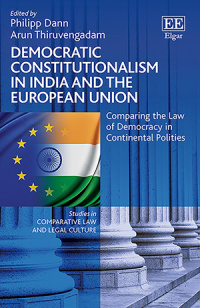Concepts of Democracy
Abstract

A comparison of democracy between India and the European Union faces, among other things, the problem that democracy itself is a notoriously fuzzy concept that can be interpreted and filled in many different ways. This article tries to make the best of this fuzziness by taking different conceptualizations of democracy and using them as a lens or analytical grid to assess the development of democracy in both systems. The main distinction is made between those conceptualizations that understand democracy as a value in itself and then focus on the quality of the democratic process, and those that see democracy mainly as a means to achieve other goals and accordingly focus on its output side. In this light, the input legitimacy concerns in India nowadays are almost as severe as those to its output legitimacy, whereas the European Union was in the past mainly said to have a deficit in the quality of democratic participation. However, a legal comparison between the systems eventually reveals the problem of an overly demanding concept of democracy as such: Democracy is then quickly overloaded with expectations it can only fail to meet.
Sources
Baruah, Pritam und Uwe Volkmann. 2021. Concepts of Democracy. In: Democratic Constitutionalism in India and the European Union, hg. von Philipp Dann und Arun K. Thiruvengadam, 43–74. Cheltenham: Edward Elgar, 18.02.2021. url: https://www.elgaronline.com/display/edcoll/9781789901566/9781789901566.00008.xml.
